Our Curriculum
At Tyndale, our mission is to create knowledgeable and skilful learners who have ‘The best chance of success’. In order to achieve this, we provide our children with an inspirational education that inspires them to lead change and enables them to become curious, life-long learners.
- Academic Curriculum
- Behaviour Curriculum
- Character Curriculum
Our Academic Curriculum - We provide our children with a knowledge rich, thematic curriculum. Our thematic curriculum is coherently planned, sequenced and delivered to include full coverage of both the Early Years Foundation Stage and the National Curriculum and to provide a range of ambitious, fully inclusive experiences for all of our children. Through our curriculum and teaching we aim to equip our children with the knowledge, skills and understanding necessary to achieve now and in the future. We have carefully planned and created a broad and balanced curriculum which strives to equip all of our children with the cultural capital they need to succeed in life. Our learning and daily routines are underpinned by our seven character habits (ready, respectful, safe, ambition, resilience, collaboration and independence), which help our children to understand what they need to do to be successful learners within a diverse society and an ever-changing world.
Our Behaviour Curriculum - At Tyndale, we develop children’s character through our behaviour curriculum. To build character, we define the behaviours and habits that we expect our children to demonstrate. We want to support our children to grow into adults who are respectful, resilient, collaborative, independent, ambitious, and who always consider others. We believe that as children practise these behaviours, over time they become automatic routines that positively shape how they feel about themselves and how other people perceive them.
Our Character Curriculum - At Tyndale, our character curriculum is defined as education for the heart. We support every child in our care to be the very best version of themselves through nurturing talent, channelling creativity, exposing ambition and competing for excellence. Our character curriculum is a deliberate attempt to teach good qualities, skills and traits. We have the ‘Magnificent Seven Character Habits’ which are: Ready, Respectful, Safe, Ambitious, Collaborative, Independent and Resilient. Our character curriculum is integral to our academic and behaviour work and provides children with a wealth of knowledge. We sequence, build, and consolidate progressive skills to prepare children for their transition to secondary and beyond.
Find out more about our curriculum by contacting our Headteacher Mr L Crouch on admin@tyndaleprimary.co.uk
Our Whole School Curriculum Maps
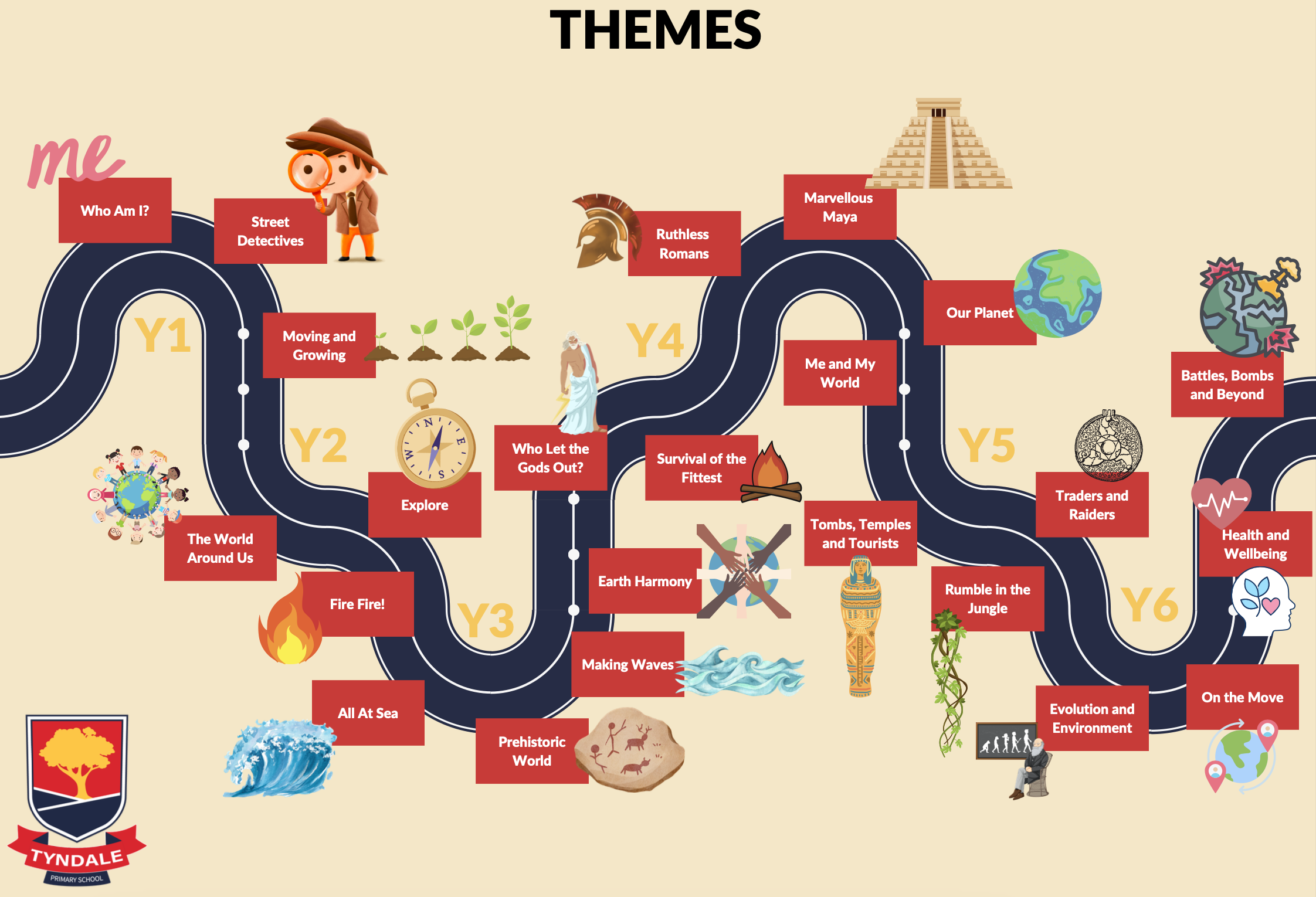
Academic Curriculum Map
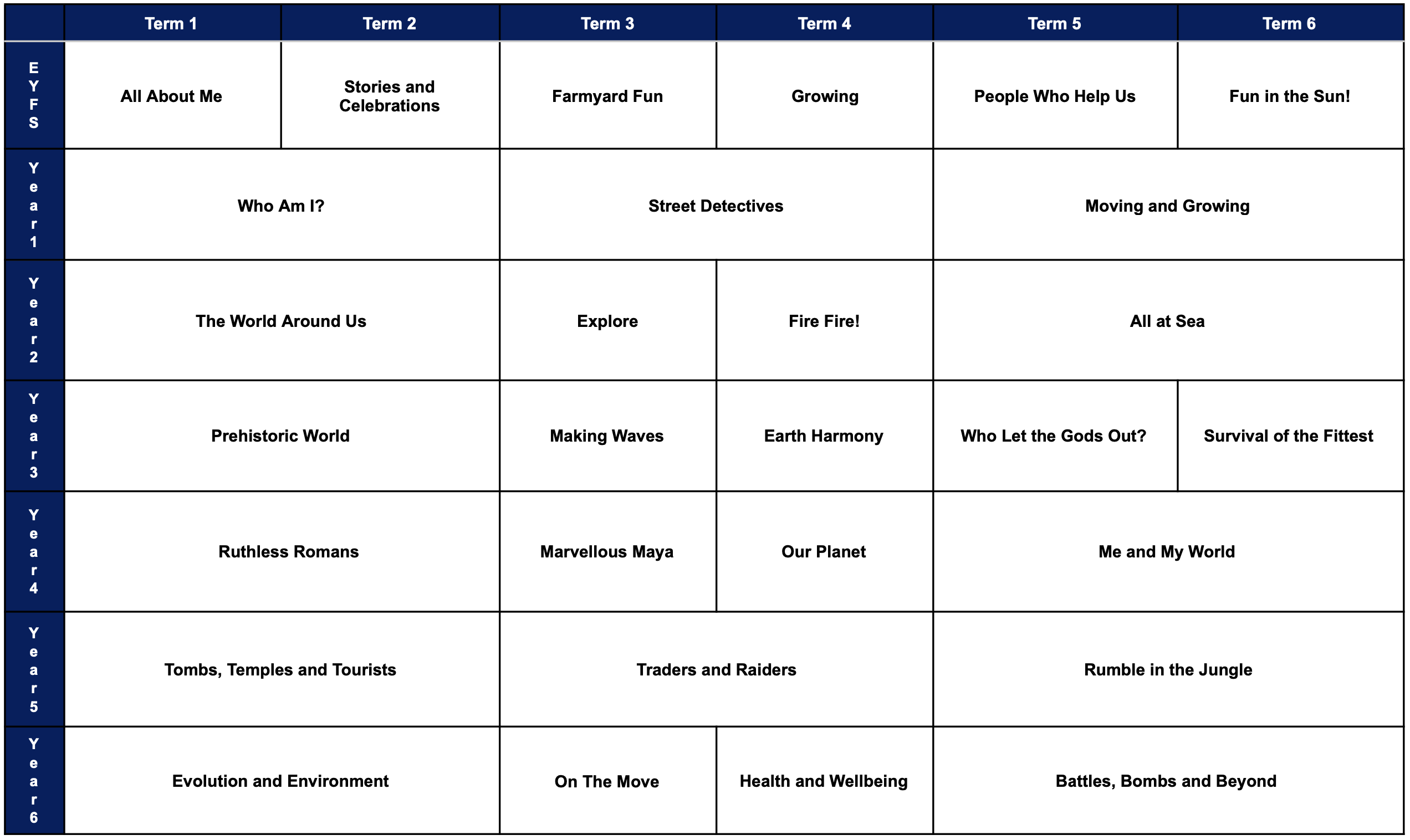
Behaviour Curriculum Map
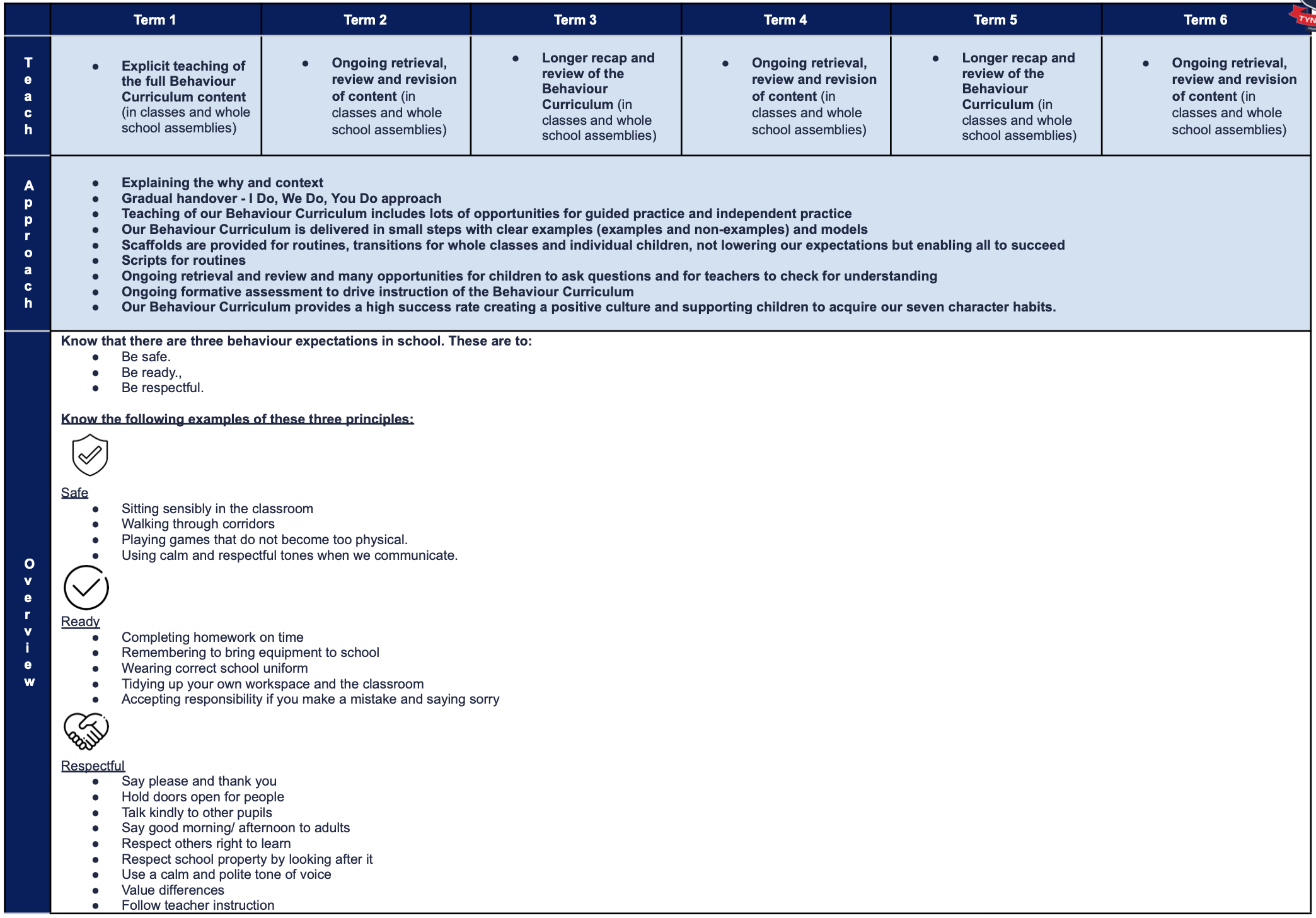
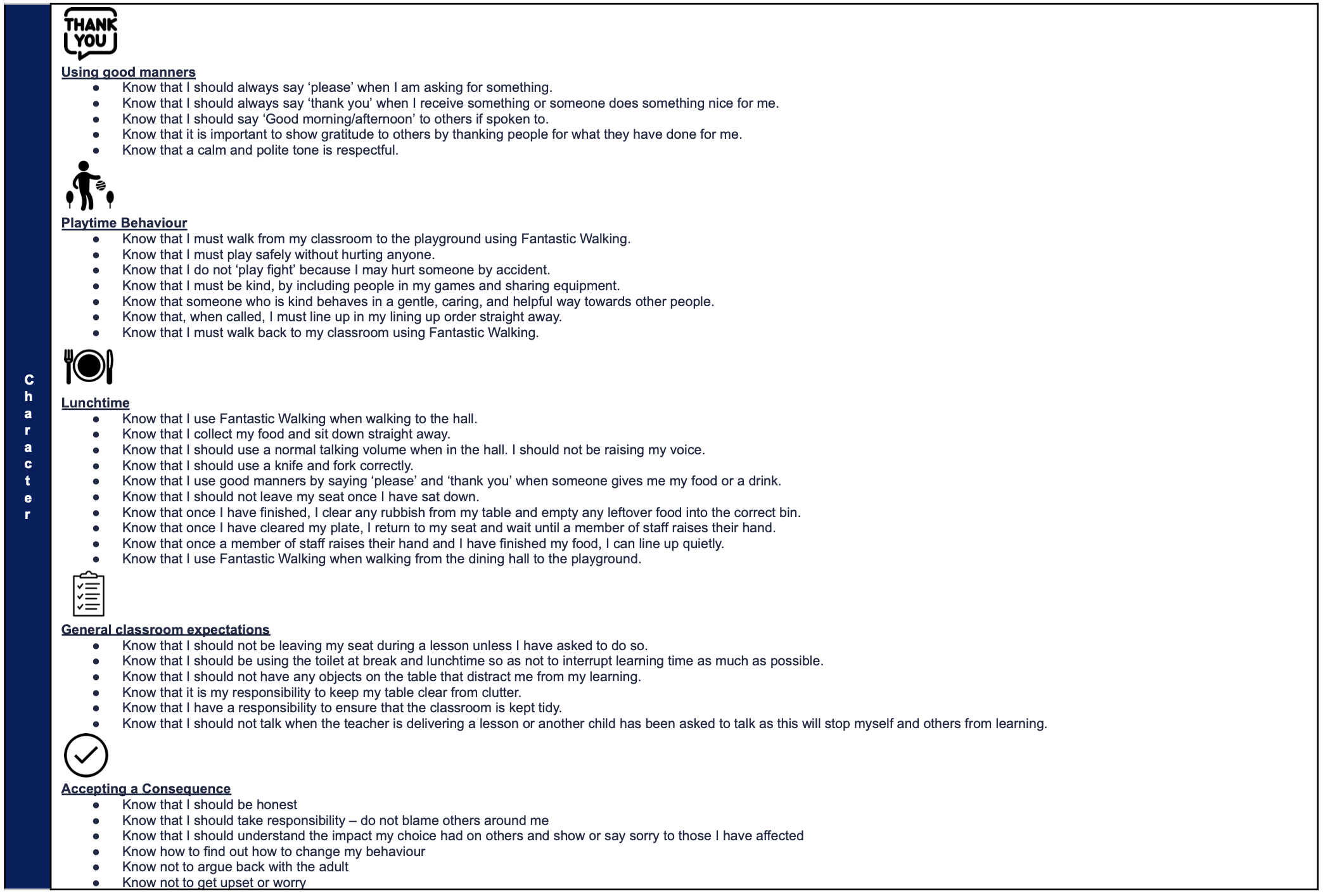
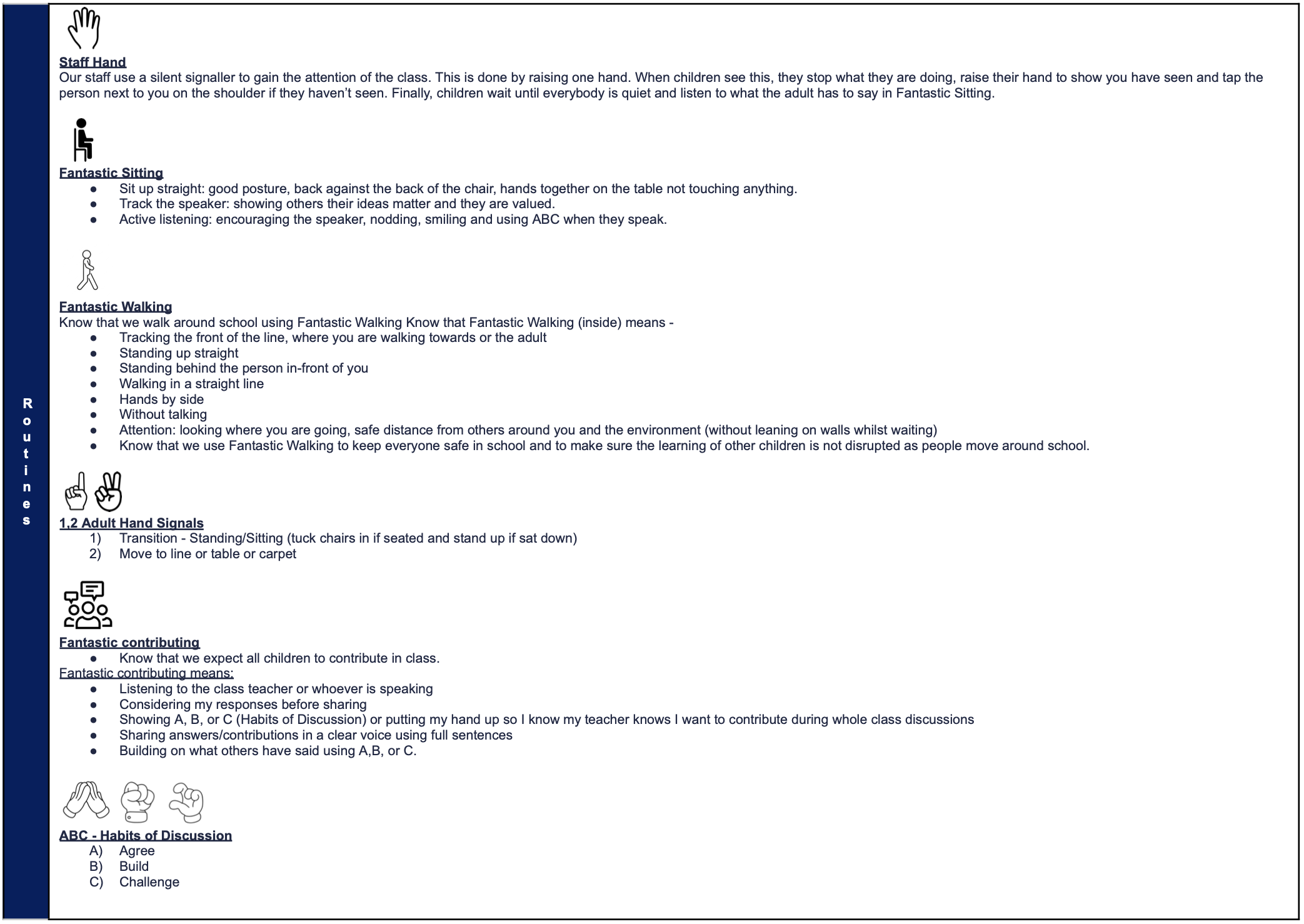
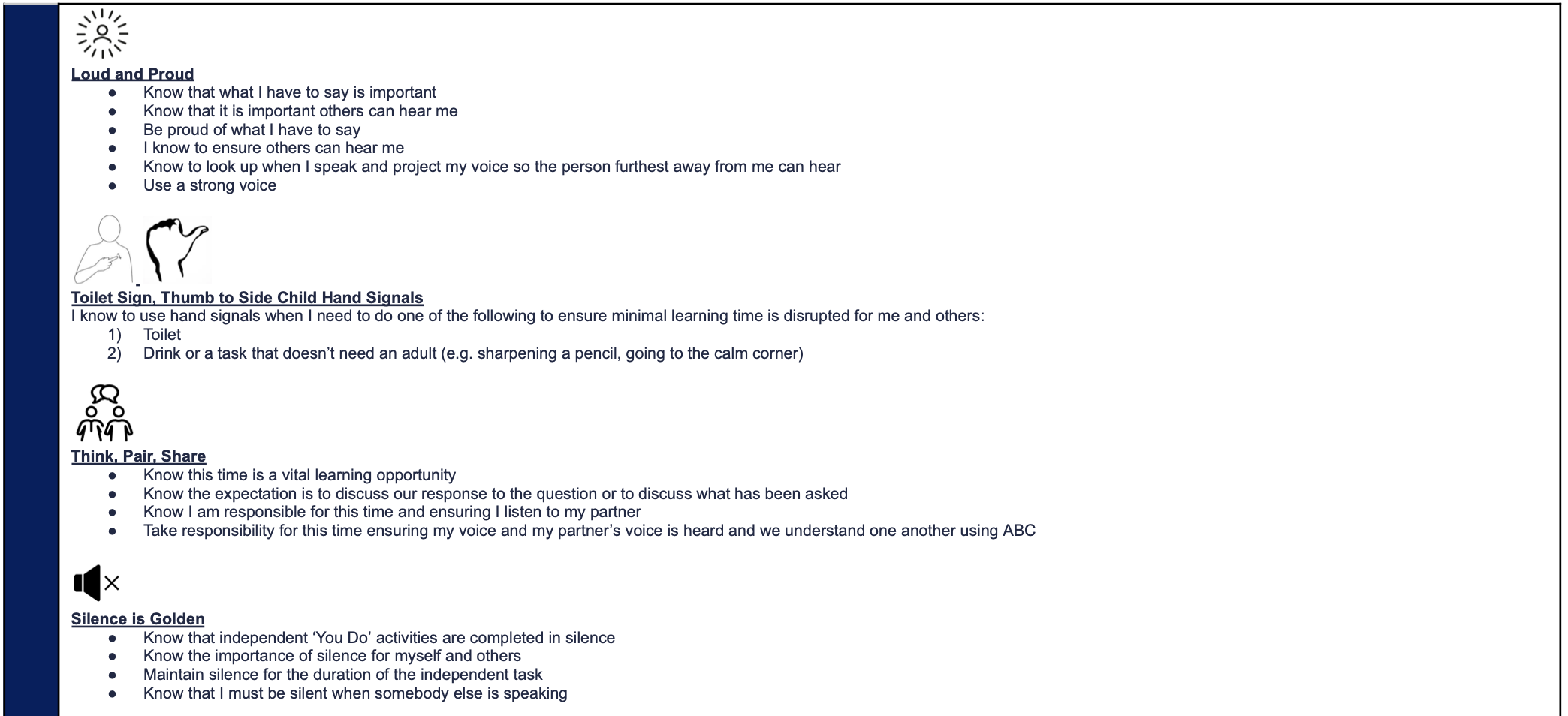
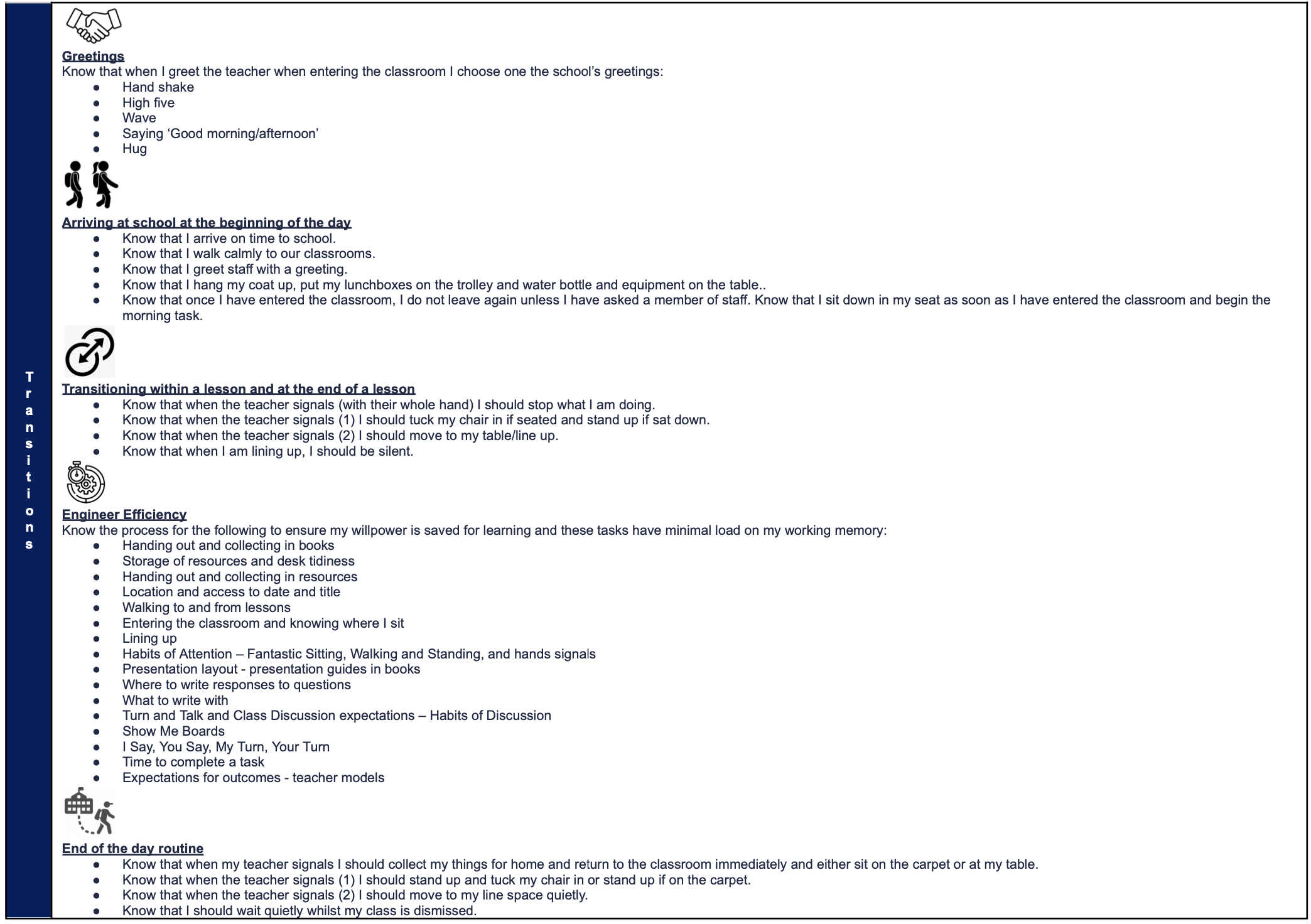
Character Curriculum Map
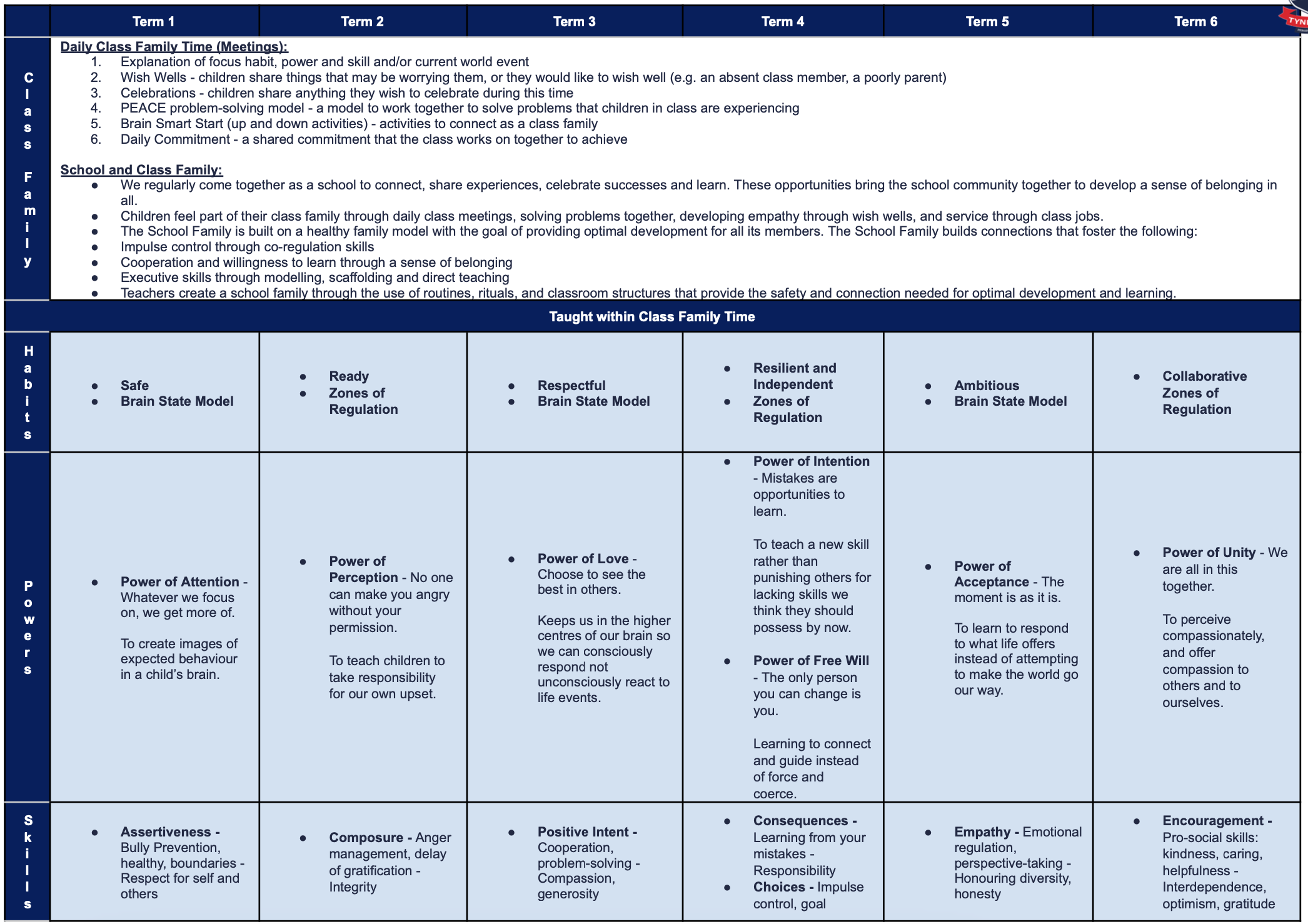
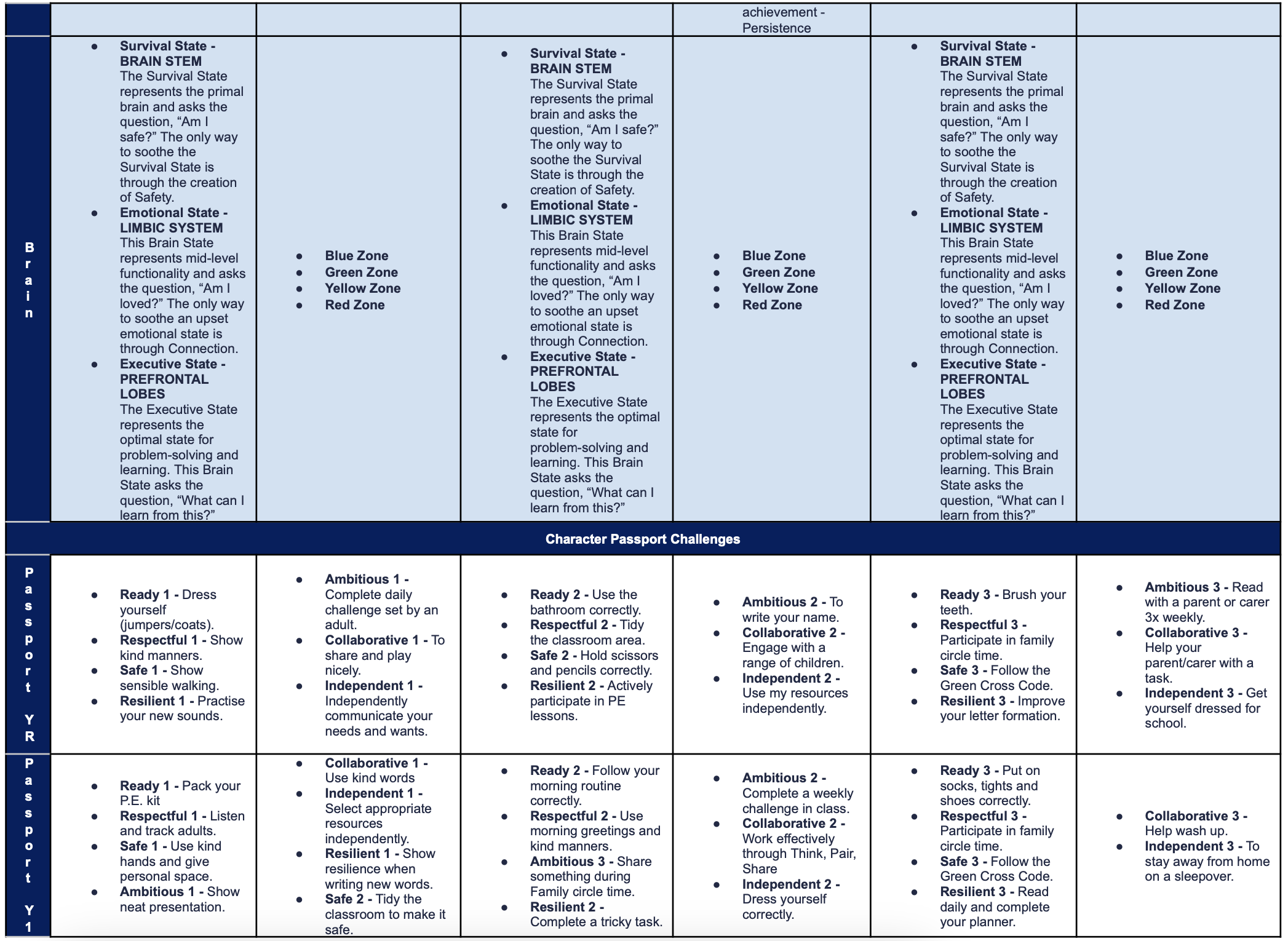
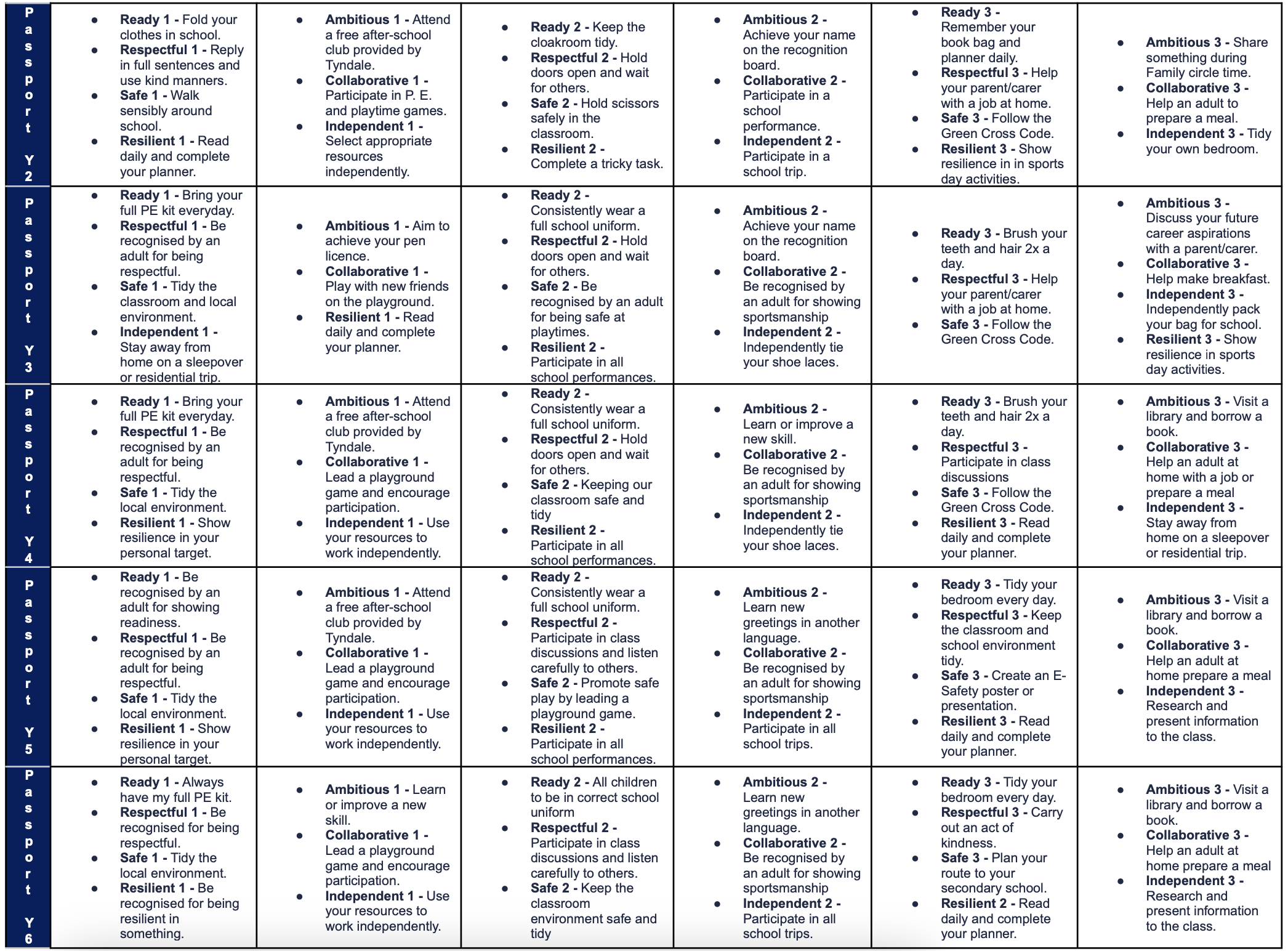
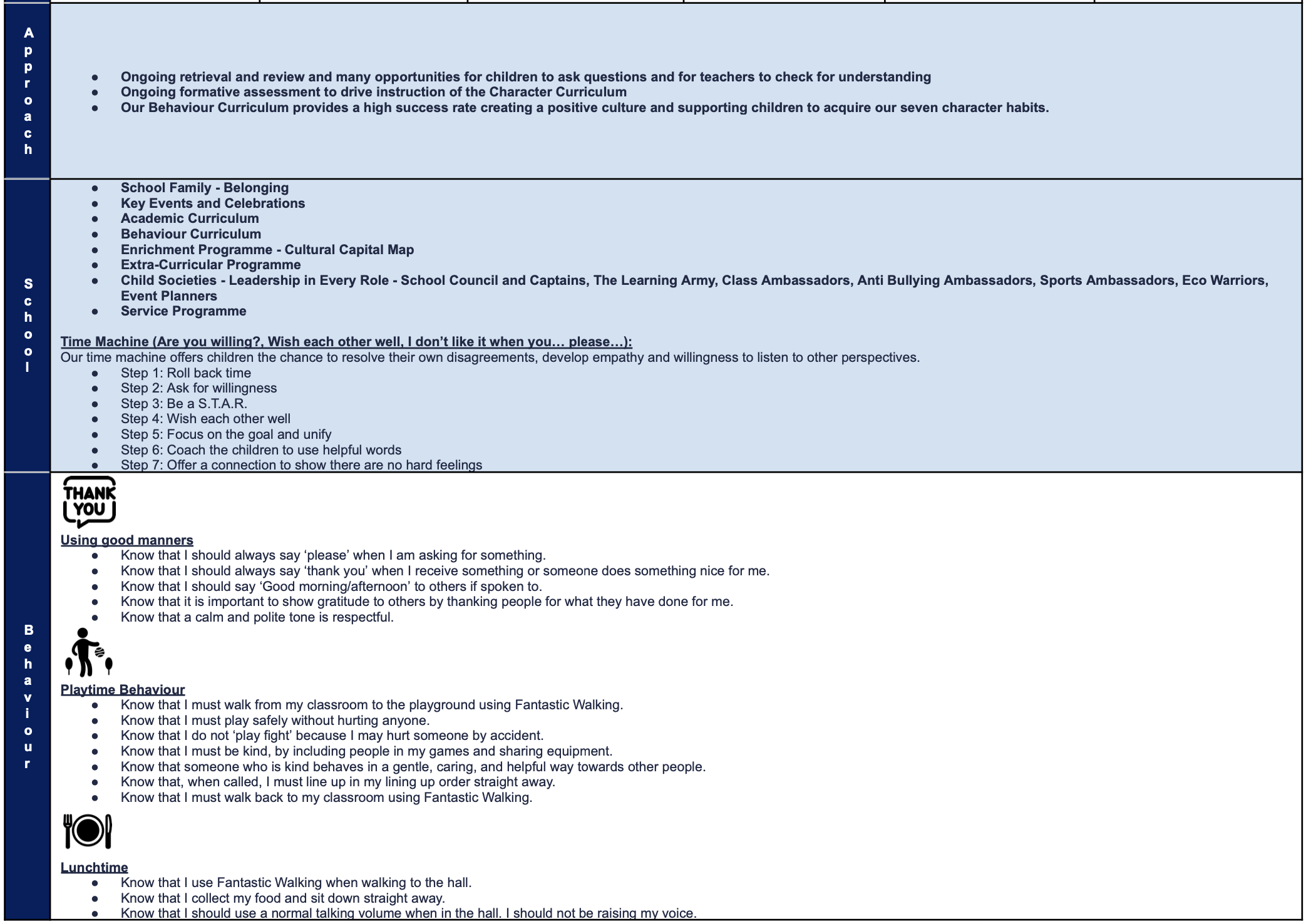
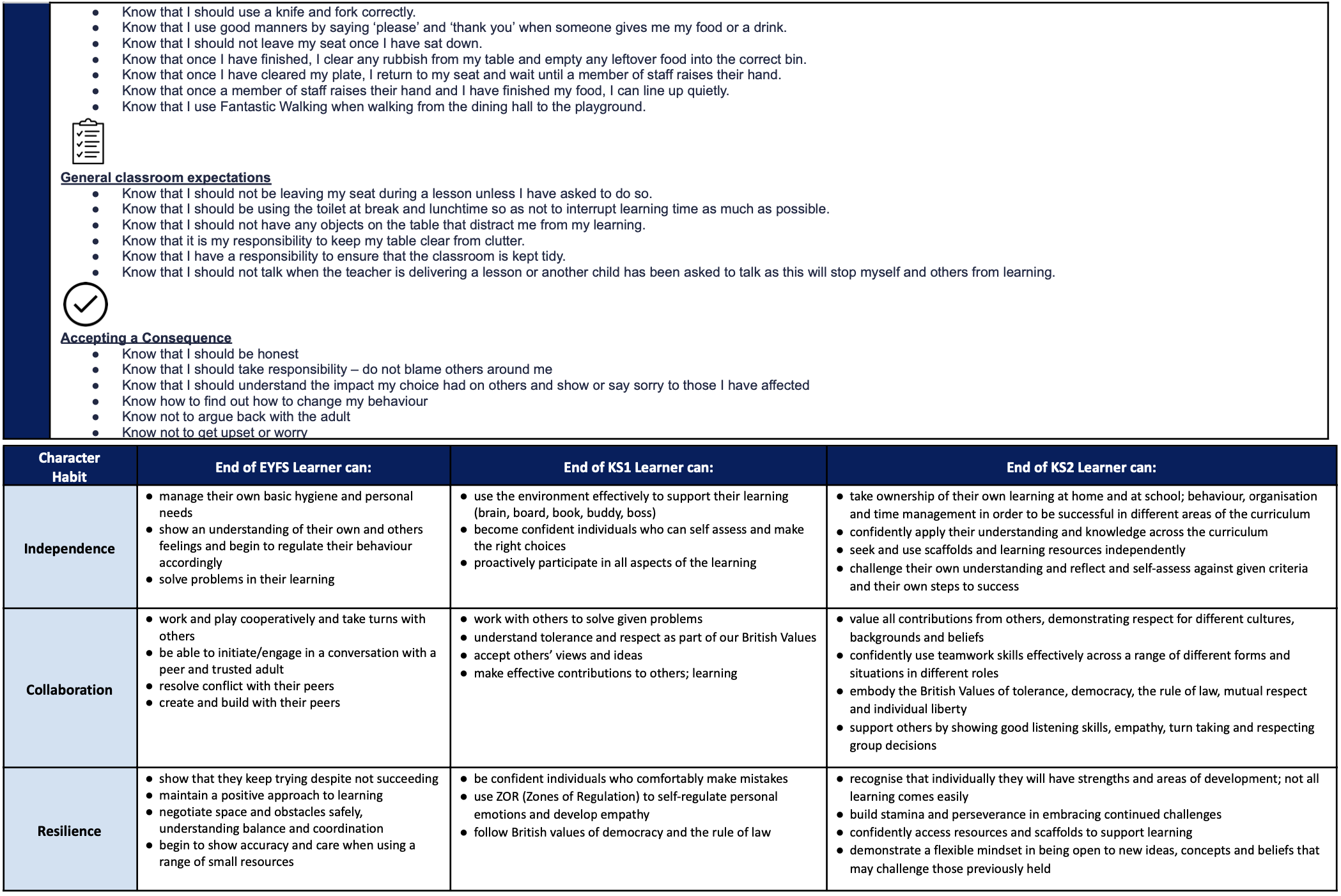

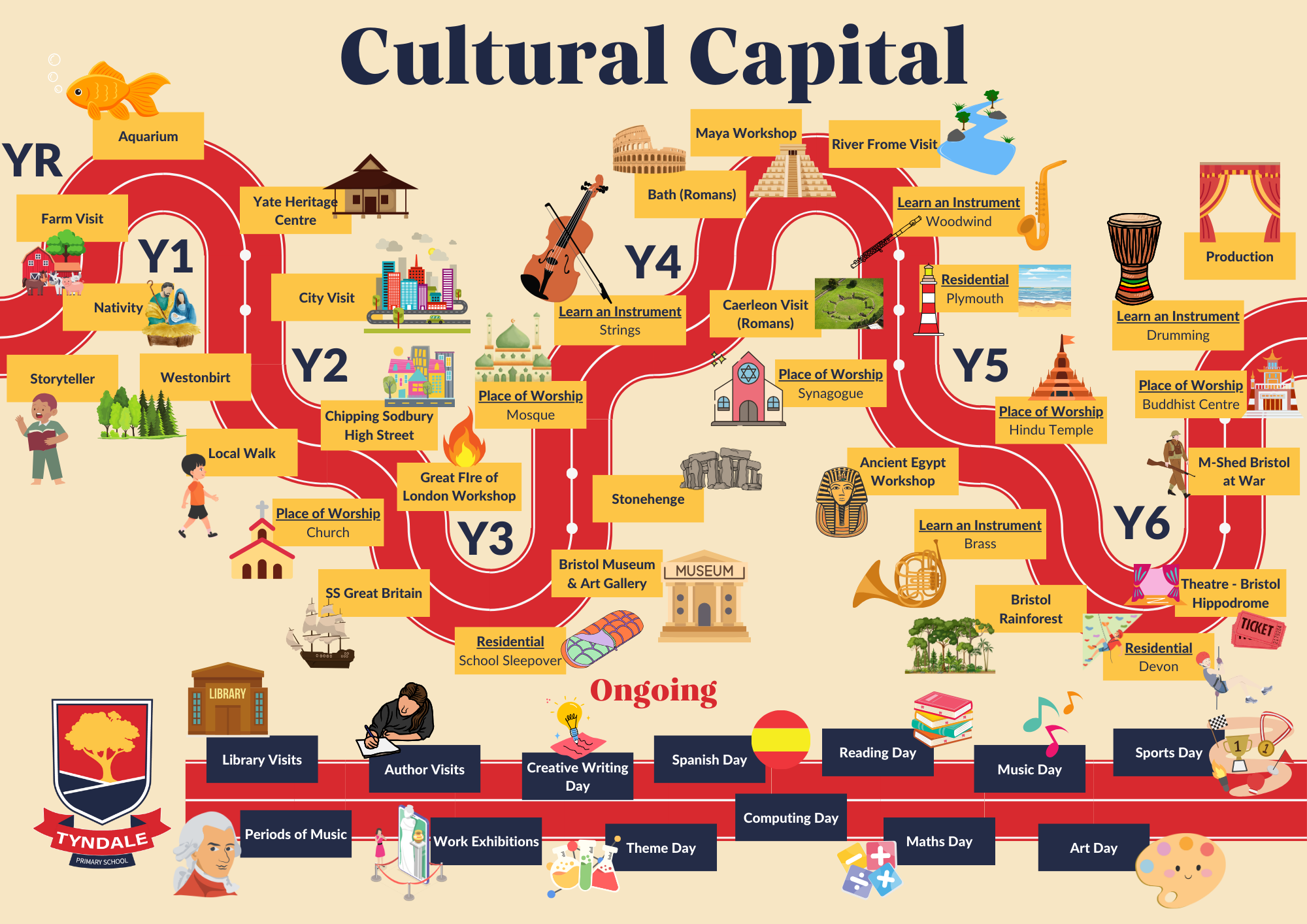
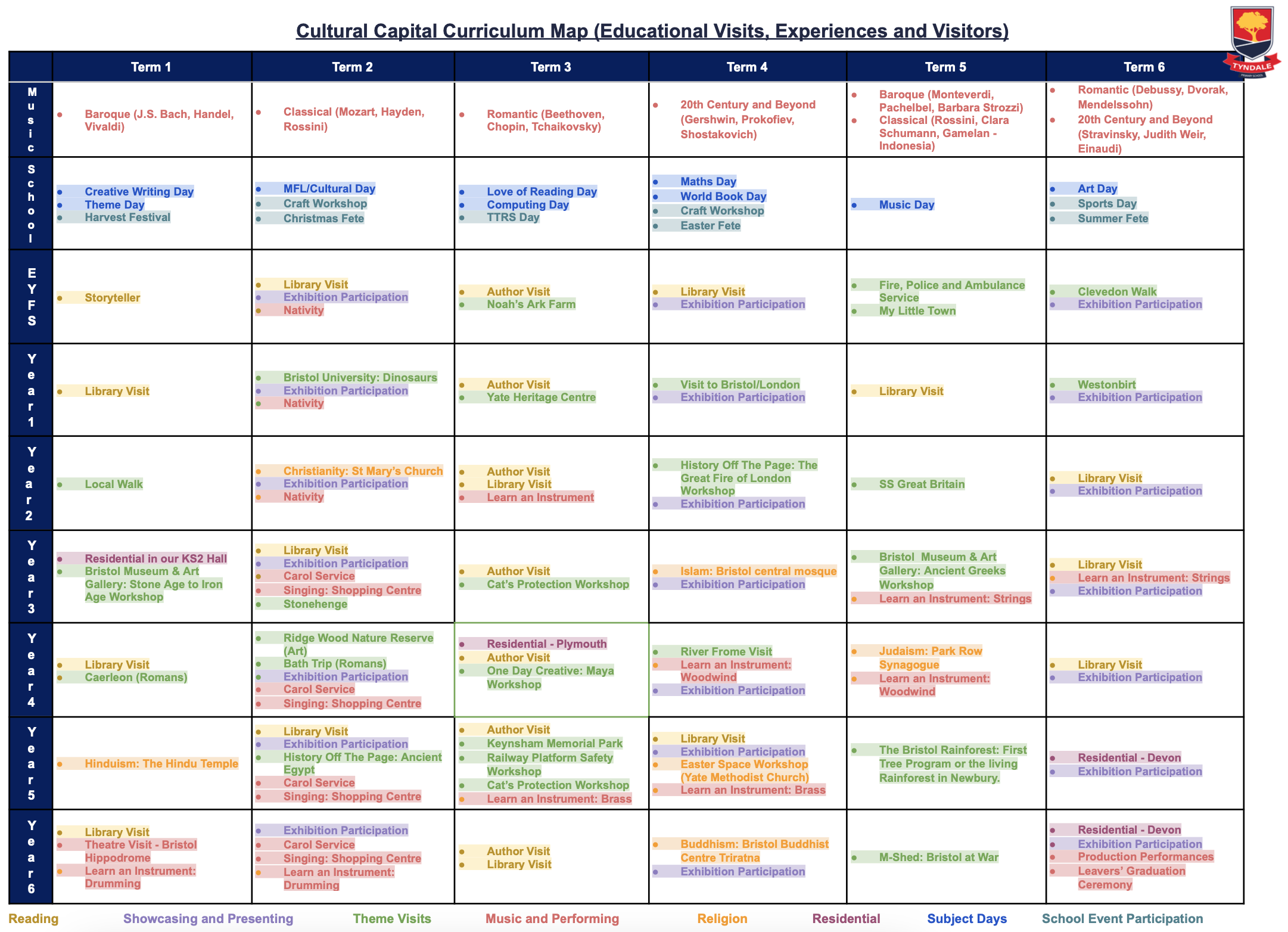
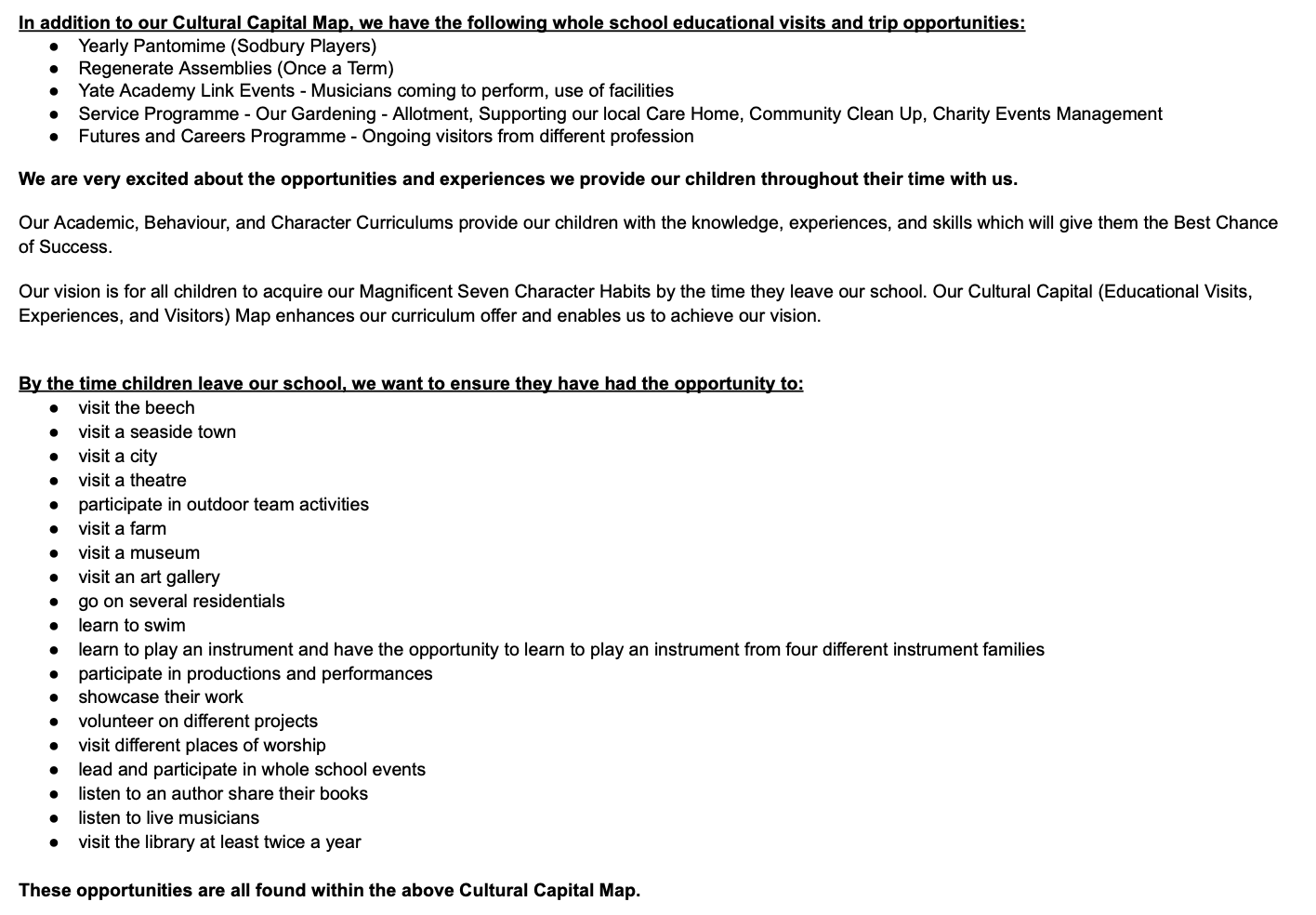
DEAR Time
DEAR (Drop Everything and Read) Time is part of the timetable every day here at Tyndale. Below is our Whole School DEAR Time Curriculum Map.
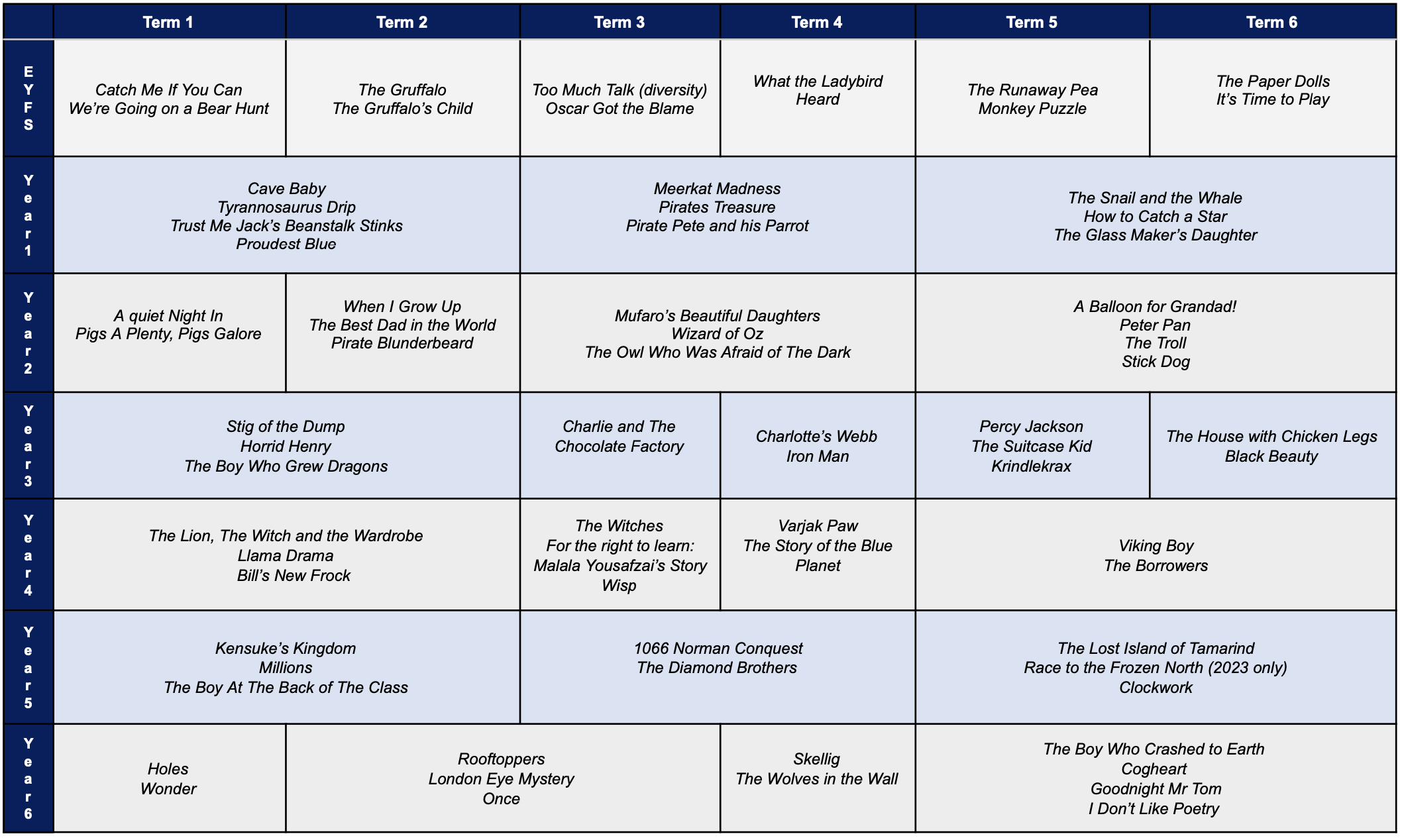
Intent
We intend for our curriculum to enable all our children to acquire our values.
We aim to achieve this through our academic, behaviour and character curriculums.
We intend for our Tyndale Curriculum to:
-
Enable all children to continually learn and develop skills.
-
Develop children’s acquisition of knowledge, skills and qualities which will help them to develop intellectually, emotionally, socially, physically and morally, so that they become positive citizens within the societies to which they belong.
-
Promote a positive attitude towards learning through our seven character habits, so that children enjoy coming to school and acquire a solid basis for lifelong learning.
-
Create and maintain an exciting and stimulating learning environment where all children are encouraged to be risk-takers and develop creative thinking.
-
Develop and grow children’s key knowledge through our knowledge-rich curriculum.
-
Develop children’s resilience in a happy and safe learning environment.
Our thematic curriculum is delivered through a number of themes in each year group which encompass a number of the curriculum subjects, including: Science, History, Geography, Art, and DT.
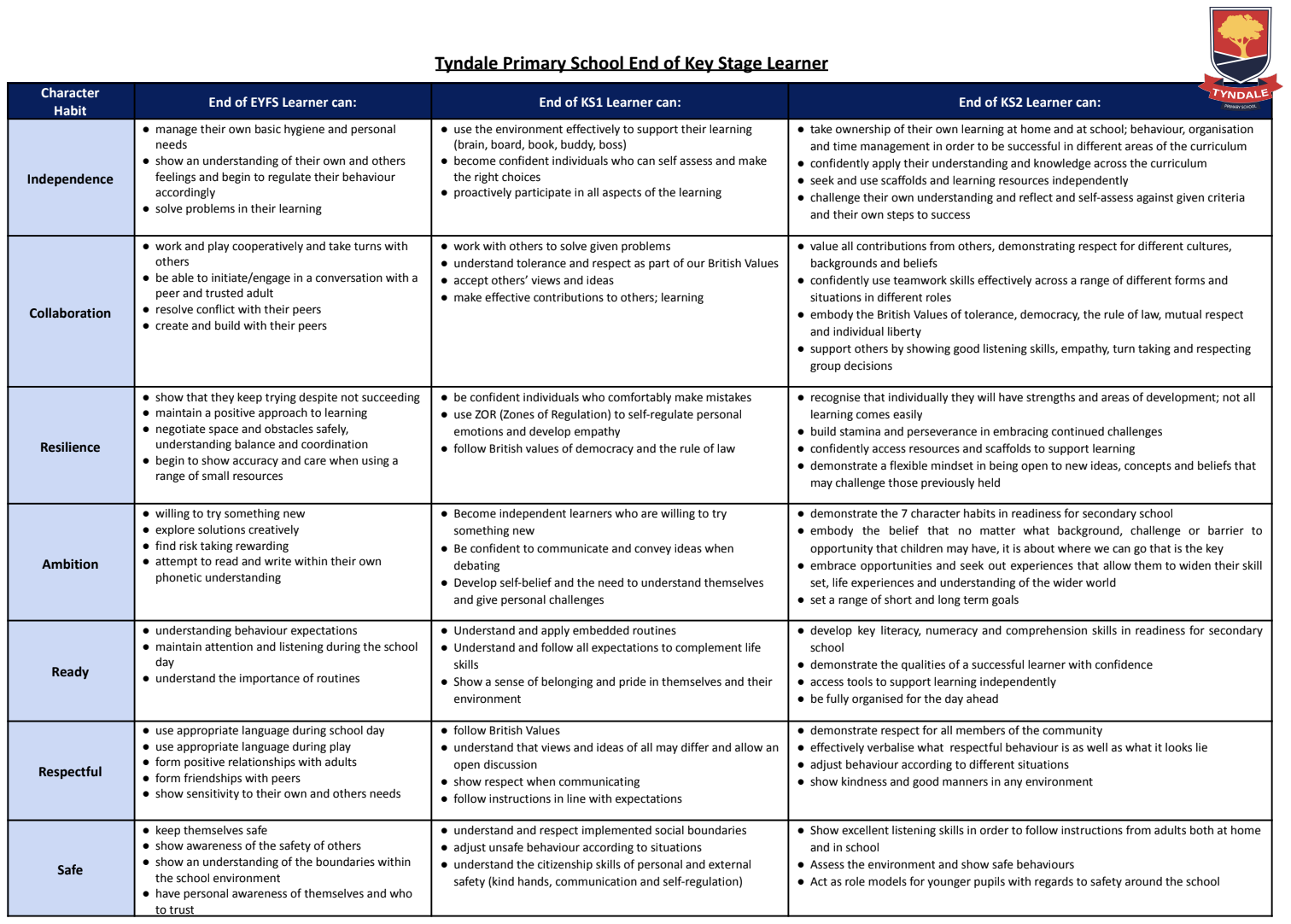
Implementation
In EYFS and KS1, our focus is to ensure we are embedding foundation skills across all areas of learning so that our children have a solid foundation for subsequent learning to be built upon in KS2. Our Senior Leadership Team (SLT) works closely with subject and curriculum leaders to ensure that the highest standards for each subject are achieved and continuous Professional Development prioritises teachers’ secure subject knowledge and pedagogy. Subject specific learning and vocabulary is shared with the children ensuring they develop their understanding of each curriculum subject as well as understanding the purpose of skills in a real-life context. We strive to spark our children’s curiosity and encourage them to raise their own questions by providing exciting, first hand, real life, practical learning experiences.
Through curriculum adjustments we ensure we meet the needs of all children, providing scaffold and stretch opportunities for all to access the same ambitious thematic curriculum. We believe that every child has the right to succeed regardless of their socio-economic background and despite any barriers they may have to their learning.
Impact
The success of our curriculum is measured through regular monitoring of the children’s knowledge, skills and understanding by subject leaders, curriculum leaders and the SLT.
Monitoring approaches include learning observations, book looks, internal and cross-trust moderation as well as formative and summative assessments. Children and teacher voices are highly valued, and we measure the progress and attainment of all groups of children. Regular planning reviews ensure expected coverage, pitch and progression. Assessments are integral to this monitoring. SLT, subject leaders and the curriculum leader ensure professional development opportunities maximise impact on child outcomes.
Through our curriculum and teaching we aim to equip our children with the knowledge, skills and understanding necessary to achieve now and in the future. Knowledgeable learners can recall prior knowledge that is stored in their long-term memories and then develop links to new schemas. A schema is an interconnected web of knowledge that resides in our long-term memory. As our children are introduced to new knowledge, we support them to connect this with an existing schema, which will become bigger. The bigger the schema is, the easier it is for our children to retrieve information from their long-term memory to working memories.

